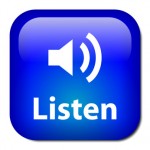Definitions
In their quest for peace of mind and reassurance anxiety sufferers will often seek answers and details about their condition wherever they can find them. Answers that inevitably have to do with their chronic symptoms, whether it be headaches, muscle twitch, dizziness, panic, chest pain or any other symptom in the never ending list of anxiety manifestations. And of all the tools that help facilitate the search for further understanding of anxiety disorders the internet is perhaps the most used, influential, and potentially damaging.
Seeking information on the internet about your symptoms is most often an exercise in futility and fear generation. Think about this for a moment. So you develop a pain or an ache somewhere, then you hop on the information superhighway and track down the 788 possibilities causing the pain, then you select one. So you have just gone from having a pain somewhere to now having diagnosed yourself with a brain tumor or fill in the blank disease. Now if you repeat this sequence of events on a regular basis you just might be a cyberchondriac.
As I think you can see, cyberchondriac is a relatively new word that combines the words cyber which is an internet related prefix, and chondriac from the word hypochondriac. Put another way, cyberchondria literally means internet health phobia. Like most health conditions there are degrees of course. So that if you occasionally troll the internet for the meaning of some symptom it doesn’t necessarily make you a cyberchoindriac. So in that case what does make you a cyberchondriac?
Essentially what differentiates a cyberchondriac from a casual internet surfer looking for information boils down to two words; excessive and persistent. If you use the internet to investigate many of your anxiety related symptoms excessively and persistently then you are in fact a cyberchondriac.
Tools of the Trade
Although you obviously need a computer and internet connection to indulge in this behavior these are not the only tools anxiety sufferers use to get their fix. The medical website is the major source and tool used to get what is needed and what is needed is immediate answers to a plethora of perplexing symptoms. Websites like Webmd, Wrongdiagnosis, Healthline and many others are filled with articles, definitions, and even symptom checkers that allow you to input your symptoms and receive a number of possible causes.
Its also not just the major websites that have these resources. Google and other large search engines are also used to find smaller websites in an effort to collect and find information about phyiscal symptoms. For example, if you go to Google right now and type in “chest pain” you will get 19,300,000 results in 0.23 seconds. This is impressive but for the anxiety sufferer this is also problematic.
The Problem
Using the internet to self diagnose is fraught with problems. Now I don’t know about you but I don’t know what makes one diagnosis more possible than another. This is because all the conditions that could be causing your pain can present very similar symptoms. Example, say you have a fever. Do you have a cold or the flu? Or do you have some other type of viral infection? The truth is that this is why medical doctors exist to interpret this very type of thing. And even with 10 years of training and many years of experience sometimes doctors misdiagnose. Now what are the odds of us being right more often? Slim at best.
There is also the matter of jumping to conclusions. As an anxiety sufferer you’re more likely to assume the worst of any symptom because of the all or nothing thinking typically associated with anxiety disorders. This is perhaps the biggest problem because you are leaving it to your anxious mind to discern if that tension headache is actually something more serious. Give an anxious mind the opportunity and it will turn your imagined disease into the belief in actual sickness. This is not conducive to less anxiety and in fact you are more likely to jack up the intensity of your fears, worry, anticipation of the worst.
The Solution
To want to know is human nature. The desire to understand is coded into our DNA much like the Lion’s DNA code that tells it to hunt. But if you are a cyberchondriac you must resist this urge. Make a mindful effort to not engage in self diagnosis and by extension avoid the torment of thinking that your death is imminent when its really not.
Ultimately not all internet searches for medical information is bad, indeed, some is very useful. Have a cold and need a home remedy to relieve that cough? The internet could turn up a useful recipe that uses everyday household foods. But when applied to collecting information about anxiety symptoms the outcome is starkly different, usually fruitless, and ends in several personal catastrophes. Imagine then, engaging in cyberchondriac behavior could lead one to think that they have heart disease, cancer, kidney failure, HIV, and hepatitis all in less than a month. If that’s not stressful I don’t know what is.
It could be argued that casual surfing on the internet to obtain information about anxiety symptoms is harmless. Almost a pastime much like looking up the news or some other entertainment. But to talk about cyberchondria as something trivial is a mistake. There is nothing casual about building more fear and expanding the base of your anxiety. And doing this on a persistent basis could be a major setback.
Doing too much of anything can be a bad thing. Eating too much, drinking too much, taking risks too often. When you abandon moderation and go head long into anything chances are the results will not always be what you intended. That innocent internet search for a fast heart beat could very well start you on the road to endless medical theories concocted by fearful and distorted thinking.
Are you a cyberchondriac or at least have cyberchondriac tendencies? This is a question worth asking yourself. It’s important because knowing if this is a behavior that affects you could help you make better choices in the future. Its analogues to watching the news everyday then complaining that the world is really an awful place. Know what you need to know and refrain from bombarding yourself with useless information that really only serves to stress you out. Have a real symptom that concerns you? Go see a doctor.
If you’re unsatisfied with that doctors evaluation then get a second opinion. However once you have been cleared of having any serious medical condition stop the search. Stop yourself from opening that can of medical worms that needs to stay closed in order for you to continue your progression toward a less anxious life. Otherwise you open the door to thoughts that come at machine gun speed and serve no other purpose than making you more anxious.






good article – ive diagnosed my self with many things. doesnt help that my diagnois is for things that there are alternative theories on and the experts believe that most doctors dont have clue (i.e. adrenal fatigue and hyperthyroidism). Blaming my ills on stress alone has certainly helped as it is something I can control.
I am a TOTAL cybercondriac. I’ve had to really reign it in. It’s actually pretty embarrassing but it really feeds my panic. Now I “allow” myself to check ONE major medical site (such as the Mayo Clinic), one natural-health-type site (that offers home remedy ideas, but I can’t read forums), and then I allow myself unlimited time on anxietyguru, the website for my church group, and anxietycentre.com. The last three sites always offer calming advice, and I always feel much better.
I also (offline) turn to Claire Weekes. And if things are still bugging me, I see my doctor. I need to find a new doctor, who is comfortable and accepting of anxiety disorder. Which, by the way, seems to be a weird switch to me – I hear more people complaining that their doctor told them they have anxiety and they don’t believe it; mine doesn’t seem to believe that anxiety could possibly cause any problems. Luckily, almost all of the tests ordered turn out negative, so even though my doctor just says, “huh! I don’t KNOW what’s causing it!” it reassures me because I know it’s anxiety.
It’s not a perfect system. I still spend far too much time stewing, far too little time floating, and take way too long to see my doc and get real reassurance. But I’m working on it.
Cyberchondriasis: Fact or fiction? A preliminary examination of the relationship between health anxiety and searching for health information on the Internet:
https://dx.doi.org/10.1016/j.janxdis.2011.11.005
Medical students have a syndrome called the Medical Student’s syndrome. They presume all sorts of diseases to themselves and they believe it and go to the Medical school ER. But it is nothing in reality. Cyberchondria is similar to that. The cardiologist who gave me a clean chit saying it is merely anxiety warned me against the internet diagnosis. The net is ofcourse invaluable. There are things that a doc dismisses as nothing but you find so many similar sufferers. For instance depoprovera is a dangerous OCP. But for the net one can never get to know its evil by interacting with fellow users. Talking about OCPs, in diagnosing anxiety, one needs to verify the patient drug usage. Any past meds can induce anxiety and the anxiety can continue despite weaning off the meds.